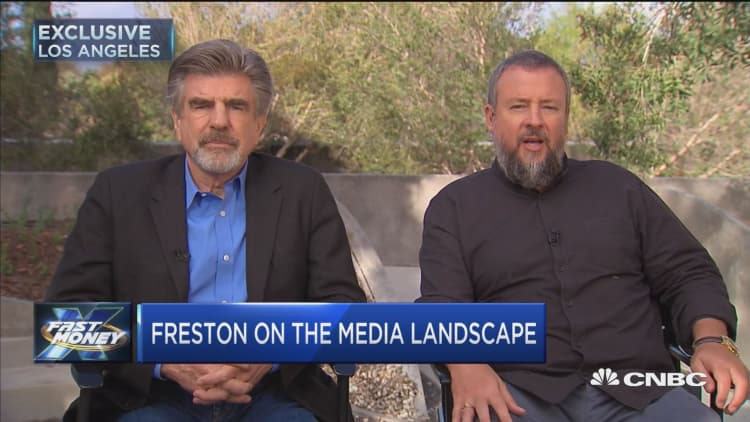With a series of major European elections in the calendar for 2017, measures are being unrolled across the continent to safeguard against fake news interfering with campaigning.
But, one analyst CNBC spoke to said that the phenomenon, which is thought by some to have led to U.S. President Donald Trump's electoral success, is already past its peak.
Jeremy Shapiro, research director at the European Council on Foreign Relations, told CNBC via telephone that fake news is "probably not going to (influence this year's elections) very much."
According to Shapiro, opacity concerning the sources of fake news stories is crucial to their success. He argued that the successful separation of fact and fiction in upcoming European elections was "deeply strengthened by things going on in the U.S."
Shapiro cast doubt over the potential future impact of fake news believed to be pushing a pro-Kremlin agenda, "in part because the Russians have so discredited themselves."
"It's harder to do the second time," he said, "We hit peak fake news about a month ago. There will never be that level of assumed impact again."
Shapiro's viewpoint comes as a series of stories swirl around the vulnerability to fake news of German Chancellor Angela Merkel's impending election campaign in particular.

This week it has been reported that the European Union's East StratCom Task Force – a body dedicated to debunking so-called "disinformation" coming from Russia's direction – found Merkel to increasingly fall in the firing line of fake news stories.
After 15 months of daily data collection, it published a report last Thursday that found "more than 2,500 examples in 18 languages of stories contradicting publicly available facts."
The report described pro-Kremlin fake news as "a non-military measure for achieving political goals."
Earlier in January, it was announced that Facebook will extend its fact checking facility to users in Germany ahead of the country's elections in September of this year.
The tool – already rolled out in the U.S. in December following concern about U.S. President Donald Trump's election win – allows users to report stories as fake news. This submits the articles in question to an organization of third party fact checkers. If a story's contents are found to be disputed, it will be flagged publicly and appear lower down on the news feed.
In a governmental attempt to protect Germany's upcoming election from fake news, it was reported in December that politicians were considering new laws that could make social networks – like Facebook – propagating fake news susceptible to hefty fines.
Germany's domestic intelligence agency announced in early December that it had noted an increase in Russian propaganda and cyber attacks against political parties.
In a statement reported by Reuters, Hans-Georg Maassen, heard of Germany's BfV spy agency, said in December that: "We see aggressive and increased cyber spying and cyber operations that could potentially endanger German government officials, members of parliament and employees of democratic parties."

